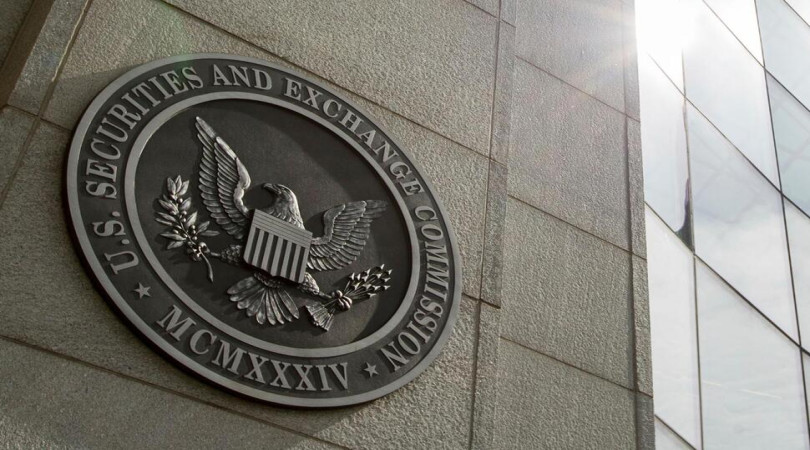The "crypto winter" has transitioned into summer in 2023, as investor concerns about a hard landing for the U.S. economy have somewhat subsided and appetite for risk assets has returned.
The U.S. Securities and Exchange Commission has cracked down on cryptocurrency exchanges, but regulators are also providing much-needed clarity for investors. BlackRock and several other leading asset managers have again filed to launch Bitcoin (BTC) spot exchange-traded funds, which could be a major bullish catalyst if approved.
Here are the 10 best-performing cryptocurrencies of 2023 among cryptos that have market capitalizations of at least $300 million. Returns are through July 18:
| CRYPTO | YEAR-TO-DATE PERFORMANCE |
| Lido DAO (LDO) | 102.6% |
| Aptos (APT) | 123.5% |
| Compound (COMP) | 126.6% |
| Ripple (XRP) | 127.3% |
| Bitcoin Cash (BCH) | 152.7% |
| Solana (SOL) | 161% |
| Render Token (RNDR) | 375.8% |
| SingularityNET (AGIX) | 427.4% |
| Injective (INJ) | 614.3% |
| Conflux (CFX) | 711.5% |
Lido DAO (LDO)
The Lido DAO is a decentralized autonomous organization where users can stake ETH without locking up assets or maintaining infrastructure. Lido launched in December 2020 after the Ethereum 2.0 Beacon Chain launched. The DAO provides liquidity for staked proof-of-stake tokens by issuing 1:1 tokenized versions of the assets users have staked. Lido DAO's governance token is LDO, which is used to vote on parameters of liquid staking protocols. Lido provides support for Ethereum and other proof-of-stake blockchains, including Solana, Polygon and Polkadot. LDO's market cap is $1.8 billion.
Aptos (APT)
Aptos is a blockchain infrastructure that uses a proof-of-stake verification system designed to improve transaction processing speed. Aptos was founded in 2021 by two former Meta Platforms Inc. (ticker: META) employees who worked on Facebook's Diem cryptocurrency project, which was discontinued in late 2022. Aptos launched in October 2022, and its blockchain runs on Diem's smart contract programming language, Move. Aptos raised up to $400 million prior to its full launch, and some have deemed its blockchain a "Solana killer" due to its smart contract functionality. After a big 2023 rally, APT coin's market cap stands at $1.6 billion.
Compound (COMP)
COMP is an ERC-20, or fungible, token used to govern the Compound protocol, which is a decentralized finance project that allows users to lend or borrow Ether (ETH) tokens at fluctuating interest rates on the Ethereum blockchain via smart contracts. COMP holders can propose, debate and vote on changes to the Compound protocol. Compound lenders earn tokens based on a variable interest rate that fluctuates according to market liquidity. The COMP token has a fixed supply of 10 million coins. COMP tokens have been on a big run so far in 2023, and its market cap stands at $549 million.
Ripple (XRP)
XRP is the cryptocurrency of the Ledger XRP blockchain developed by Ripple Labs. XRP users can send and receive payments instantly from anywhere in the world, and it is accepted as payment by a handful of e-commerce platforms. XRP prices ripped higher on July 13 after a New York judge ruled it is "not necessarily a security on its face." The ruling is the latest development in a battle between XRP and the SEC after it sued Ripple for selling unregistered securities back in 2020. XRP's market cap has grown to $39.6 billion.
Bitcoin Cash (BCH)
Bitcoin Cash is a proof-of-work blockchain network and associated cryptocurrency that was formed via a hard fork of Bitcoin in 2017. BCH was designed to emphasize lower fees and faster transaction speeds than the main Bitcoin network. Bitcoin Cash developers see it as a superior alternative to Bitcoin as a digital payment system. Bitcoin Cash got a big boost in June when new crypto exchange EDX, which is backed by Wall Street heavy hitters such as Citadel Securities, Charles Schwab and Fidelity, included BCH as one of only four cryptocurrencies offered at launch. BCH has a $4.8 billion market cap.
Solana (SOL)
SOL is the native cryptocurrency of the Solana blockchain, a network that supports decentralized applications, or dApps, and smart contracts. Solana users earn SOL by serving as network nodes or validators. The Solana network uses a deflationary model that includes burning SOL tokens to reduce supply. Half of each transaction fee is burned, while the other half is paid out as a reward to the validator that verified the transaction. As of 2023, Solana's annual inflation rate is 6.3%, but it is set to decrease by 15% each year. Solana's market cap is $10.3 billion.
Render Token (RNDR)
RNDR is an Ethereum token used to power the Render Network, a protocol specially designed for distributed graphics processing. Artists on the Render Network use RNDR to exchange the compute power of node operators that provide graphics processing units to the network. Users can pay for the processing power to render animations, motion graphics and visual effects on the Render Network. The RNDR initial coin offering took place in October 2017, and the coin's total supply is capped at 536,870,912 tokens. After a big 2023 run, RNDR's market cap is up to $704.8 million.
SingularityNET (AGIX)
SingularityNET is a decentralized artificial intelligence marketplace that runs on a blockchain network. The project's goal is to develop artificial general intelligence by leveraging blockchain technology to create a fair distribution of global power and technology. The AGIX token is the native cryptocurrency for SingularityNET, and users can stake their AGIX tokens to earn additional tokens. The staking portal is operated on the Ethereum blockchain, and the network plans to launch an improved staking portal on the Cardano blockchain in the future. Investor enthusiasm for AI technology in 2023 has grown AGIX's market cap to around $300 million.
Injective (INJ)
The Injective protocol is a decentralized exchange that supports advanced trading features, such as derivative and margin trading. The protocol's financial backers include billionaire entrepreneur Mark Cuban. INJ tokens govern the exchange, and the protocol distributes INJ to incentivize staking and participation in the network. The INJ token is also used as an alternative to stablecoins for margin and collateral backing. The protocol burns excess fee tokens to reduce supply, mitigate inflation and support the price of INJ. INJ's positive momentum reflects growing interest in the Injective exchange. INJ's market cap is $720.8 million.
Conflux (CFX)
Conflux is a utility-based cryptocurrency native to the Conflux network, an open protocol for dApps, finance and Web3 projects. Conflux combines proof-of-work verification with tree-graph structure to allow the secure flow of assets and data across protocols and applications. The network's directed acyclic graph structure decreases confirmation times and substantially boosts throughput by allowing parallel processing of blocks and transactions. CFX has a total supply of 10 million tokens and a market cap of $565.2 million. It's not even in the top 100 cryptos by market cap, but CFX has been the best performing cryptocurrency of 2023.





